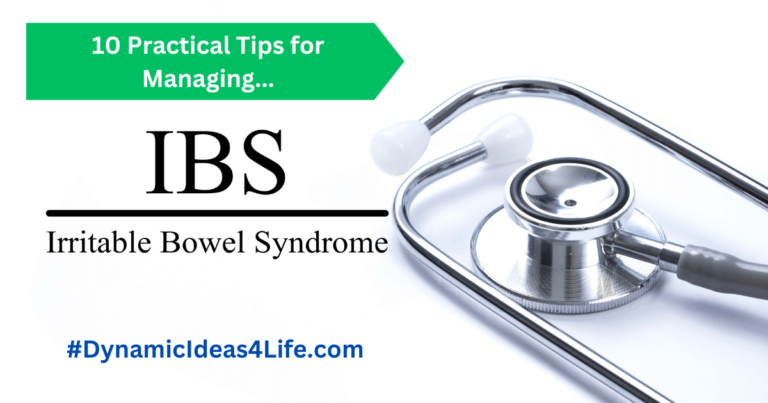How Losing Weight Can Affect GERD and Acid Reflux For The Better. If you are overweight and experience symptoms such as heartburn then weight loss may very well be something to think about.
Excess weight not only affects the physical aspects of acid reflux and GERD but also has an impact on lifestyle factors that can exacerbate these conditions. Individuals struggling with obesity may be more likely to indulge in a diet rich in fatty, greasy, and acidic foods, all of which can trigger or worsen acid reflux symptoms.
Furthermore, poor eating habits coupled with a sedentary lifestyle can contribute to a slower digestive process, allowing stomach acid to linger in the esophagus for a longer duration, intensifying discomfort.
Plus it should also be noted that the relationship between weight and acid reflux is not one-sided. GERD and acid reflux can contribute to weight gain through inflammation. Something that not only promotes weight gain but also increases the risk of developing insulin resistance, a condition that can further hinder weight loss efforts.
This intricate connection underscores the significance of adopting a holistic approach to managing GERD and acid reflux, one that includes addressing both weight and inflammation as part of the treatment strategy.
It gets a bit more complex from here but if this is something you’d like to learn about then please keep reading…
How Losing Weight Can Affect GERD and Acid Reflux For The Better
Table of Contents
ToggleGastroesophageal reflux disease (GERD) is a chronic condition that affects millions of people worldwide. It occurs when the contents of the stomach flow back into the esophagus, causing symptoms such as heartburn, regurgitation, and chest pain. While occasional heartburn is common and usually harmless, GERD is a more severe form of acid reflux that can have a significant impact on a person’s quality of life.
One of the lesser-known effects of GERD is its potential to contribute to weight gain. Understanding the causes, symptoms, and risk factors of GERD is crucial for managing the condition and maintaining a healthy weight.
Understanding GERD: Causes, Symptoms, and Risk Factors
GERD occurs when the lower esophageal sphincter (LES), a ring of muscle that acts as a valve between the esophagus and stomach, becomes weakened or relaxed.
This allows stomach acid to flow back into the esophagus, causing irritation and inflammation. Unlike occasional heartburn, which can be triggered by certain foods or lifestyle factors, GERD is a chronic condition that requires ongoing management.
Common causes of GERD include obesity, hiatal hernia (a condition in which part of the stomach pushes up through the diaphragm), pregnancy, smoking, and certain medications such as nonsteroidal anti-inflammatory drugs (NSAIDs) and calcium channel blockers (CCBs).
Symptoms of GERD can vary from person to person but often include heartburn (a burning sensation in the chest), regurgitation (the sensation of acid or food coming back up into the throat or mouth), and chest pain.
Risk factors for developing GERD include obesity, smoking, pregnancy, certain medical conditions such as diabetes and asthma, and certain medications.
It is important to be aware of these risk factors in order to take steps towards preventing or managing GERD.
The Link Between GERD and Weight Gain: Exploring the Connection
There is a strong link between GERD and weight gain. Excess weight, especially around the abdomen, can put pressure on the stomach and LES, causing them to become weakened or relaxed.
This can lead to the development or worsening of GERD symptoms.
Additionally, excess weight can contribute to other risk factors for GERD, such as hiatal hernia and poor digestion.
Research has shown that weight loss can significantly improve GERD symptoms. A study published in the New England Journal of Medicine found that participants who lost at least 5% of their body weight experienced a reduction in GERD symptoms.
Another study published in the Journal Obesity found that participants who underwent bariatric surgery for weight loss experienced a significant improvement in GERD symptoms.
Diet Modifications for Managing GERD: Foods to Avoid and Include
Making dietary changes is an important part of managing GERD symptoms and maintaining a healthy weight. Certain foods can trigger or worsen GERD symptoms, while others can help alleviate them.
It is important to avoid foods that are high in fat, as they can slow down digestion and increase the risk of acid reflux.
Citrus fruits, tomatoes, and spicy foods should also be avoided, as they can irritate the esophagus.
On the other hand, there are foods that can help manage GERD symptoms. Lean proteins such as chicken, fish, and tofu are good options, as they are low in fat and easy to digest.
Whole grains such as brown rice and whole wheat bread are also beneficial, as they provide fiber and help regulate digestion.
Non-citrus fruits such as bananas and apples are gentle on the stomach and can help alleviate acid reflux.
Portion Control and Weight Loss: Key Strategies for Reducing Acid Reflux
Practicing portion control is an effective strategy for managing GERD symptoms and promoting weight loss.
Eating large meals can put pressure on the stomach and LES, increasing the risk of acid reflux. By eating smaller, more frequent meals, you can reduce the amount of food in your stomach at one time and prevent excessive pressure on the LES.
There are several tips for practicing portion control. Using smaller plates and bowls can help you visually gauge appropriate portion sizes. Measuring your food with measuring cups or a food scale can also help you control portion sizes. It is important to listen to your body’s hunger and fullness cues and stop eating when you are satisfied, rather than when you are overly full.
Weight loss is an important goal for managing GERD symptoms. Excess weight puts pressure on the stomach and LES, increasing the risk of acid reflux.
By losing weight, you can reduce this pressure and alleviate GERD symptoms. It is important to approach weight loss in a healthy and sustainable way, through a combination of diet and exercise.
Lifestyle Changes for GERD Relief: Tips for Improving Digestion
In addition to diet modifications, there are several lifestyle changes that can help alleviate GERD symptoms and improve digestion. Eating smaller meals more frequently throughout the day can help prevent excessive pressure on the stomach and LES. It is also important to avoid lying down or going to bed immediately after eating for the same reasons.
Besides this other tips for improving digestion include chewing food thoroughly before swallowing, avoiding tight-fitting clothing that puts pressure on the abdomen, and maintaining a healthy weight.
It is also important to avoid smoking and limit alcohol consumption, as these habits can worsen GERD symptoms.
Maintaining a healthy lifestyle overall is crucial for managing GERD symptoms. This includes getting regular exercise, practicing stress management techniques such as meditation or deep breathing exercises, and getting enough sleep.
Stress and lack of sleep can both contribute to GERD symptoms, so it is important to prioritize self-care in order to manage the condition effectively.
The Role of Exercise in Managing GERD and Promoting Weight Loss
Exercise and Fitness plays a crucial role in managing GERD symptoms and promoting weight loss. Regular physical activity can help improve digestion, reduce stress, and maintain a healthy weight. It can also help strengthen the LES and prevent acid reflux.
There are several types of exercise that can be beneficial for managing GERD symptoms. Low-impact exercises such as walking, swimming, and cycling are gentle on the stomach and can help improve digestion.
Yoga and Pilates are also beneficial, as they focus on strengthening the core muscles and improving posture, which can help prevent acid reflux.
In addition to managing GERD symptoms, exercise is also important for weight loss. It helps burn calories, build muscle, and increase metabolism.
By incorporating regular exercise into your routine, you can achieve and maintain a healthy weight, which is crucial for managing GERD symptoms.
Stress Management Techniques for Minimizing Acid Reflux Symptoms
Stress is a common trigger for GERD symptoms. When we are stressed, our bodies produce more stomach acid, which can increase the risk of acid reflux.
Additionally, stress can lead to poor eating habits, such as overeating or choosing unhealthy foods, which can worsen GERD symptoms.
There are several stress management techniques that can help minimize acid reflux symptoms. Meditation is a powerful tool for reducing stress and promoting relaxation.
Deep breathing exercises can also help calm the body and mind.
Other techniques such as yoga, tai chi, and journaling can help reduce stress and promote overall well-being.
It is important to find healthy coping mechanisms for stress in order to manage GERD symptoms effectively. This may involve seeking support from friends or family, engaging in hobbies or activities that bring joy, or seeking professional help from a therapist or counselor.
Medications for GERD: Finding the Right Treatment Plan
In some cases, lifestyle modifications alone may not be enough to manage GERD symptoms. In these cases, medications may be prescribed to help reduce stomach acid and alleviate symptoms.
There are several types of medications commonly used to treat GERD, including proton pump inhibitors (PPIs), H2 blockers, and antacids.
PPIs work by reducing the production of stomach acid, while H2 blockers reduce the amount of acid produced by the stomach.
Antacids provide temporary relief by neutralizing stomach acid. It is important to work with a healthcare professional to find the right medication and dosage for your specific needs.
It is also important to be aware of potential side effects and considerations when taking GERD medications.
PPIs, for example, have been associated with an increased risk of certain health conditions such as kidney disease and osteoporosis.
It is important to weigh the benefits and risks of medication use and discuss any concerns with your healthcare provider.
*Note: One sensible idea is if you have high or low stomach acid – if you have low stomach acid then you should not be taking any of the medications mentioned above [Read More HERE}
Natural Remedies for Acid Reflux: Home Remedies to Try
In addition to medications, there are several natural remedies that may help alleviate GERD symptoms. It is important to note that the scientific evidence for these remedies is limited, and they may not work for everyone.
It is always best to consult with a healthcare professional before trying any natural remedies.
Some natural remedies that may help alleviate GERD symptoms include;
Ginger: Ginger has been used for centuries as a natural remedy for digestive issues. It can help reduce inflammation in the esophagus and soothe the stomach.
Slippery elm: Slippery elm is an herb that can help coat and protect the lining of the esophagus, reducing irritation and inflammation.
Aloe vera juice: Aloe vera juice has anti-inflammatory properties and can help soothe the esophagus.
Marshmallow root: Marshmallow root can help coat and protect the lining of the esophagus, reducing irritation and inflammation.
It is important to remember that natural remedies are not a substitute for medical treatment. If you are experiencing severe or persistent GERD symptoms, it is important to seek medical advice.
Seeking Professional Help: When to Consult a Doctor for GERD and Weight Loss Guidance
While lifestyle modifications and natural remedies can be effective for managing GERD symptoms, there may be cases where medical intervention is necessary.
It is important to consult a doctor if you are experiencing severe or persistent GERD symptoms, as this may indicate a more serious underlying condition.
A doctor can help diagnose GERD and develop a personalized treatment plan based on your specific needs. They may recommend further testing, such as an endoscopy or pH monitoring, to assess the severity of your condition.
They can also provide guidance on weight loss strategies and refer you to other healthcare professionals, such as dietitians or therapists, if needed.
Untreated GERD can lead to complications such as;
- Esophagitis (inflammation of the esophagus),
- Esophageal strictures (narrowing of the esophagus), and
- Barrett’s esophagus (a precancerous condition).
Early intervention is key to preventing these complications and managing GERD effectively.
Conclusion
GERD is a chronic condition that can have a significant impact on a person’s quality of life. Understanding the causes, symptoms, and risk factors of GERD is crucial for managing the condition and maintaining a healthy weight.
By making dietary and lifestyle changes, practicing portion control, incorporating exercise into your routine, managing stress, and seeking professional help when needed, you can effectively manage GERD symptoms and achieve a healthy weight. Remember to consult with a healthcare professional for personalized advice and guidance.
About Author
Alex Chivers
Alex Chivers writes about natural health, nutrition, and lifestyle wellness at Dynamic Ideas 4 Life. His mission is to help readers discover practical, evidence-based ways to feel better, live healthier, and take control of their wellbeing — naturally.





